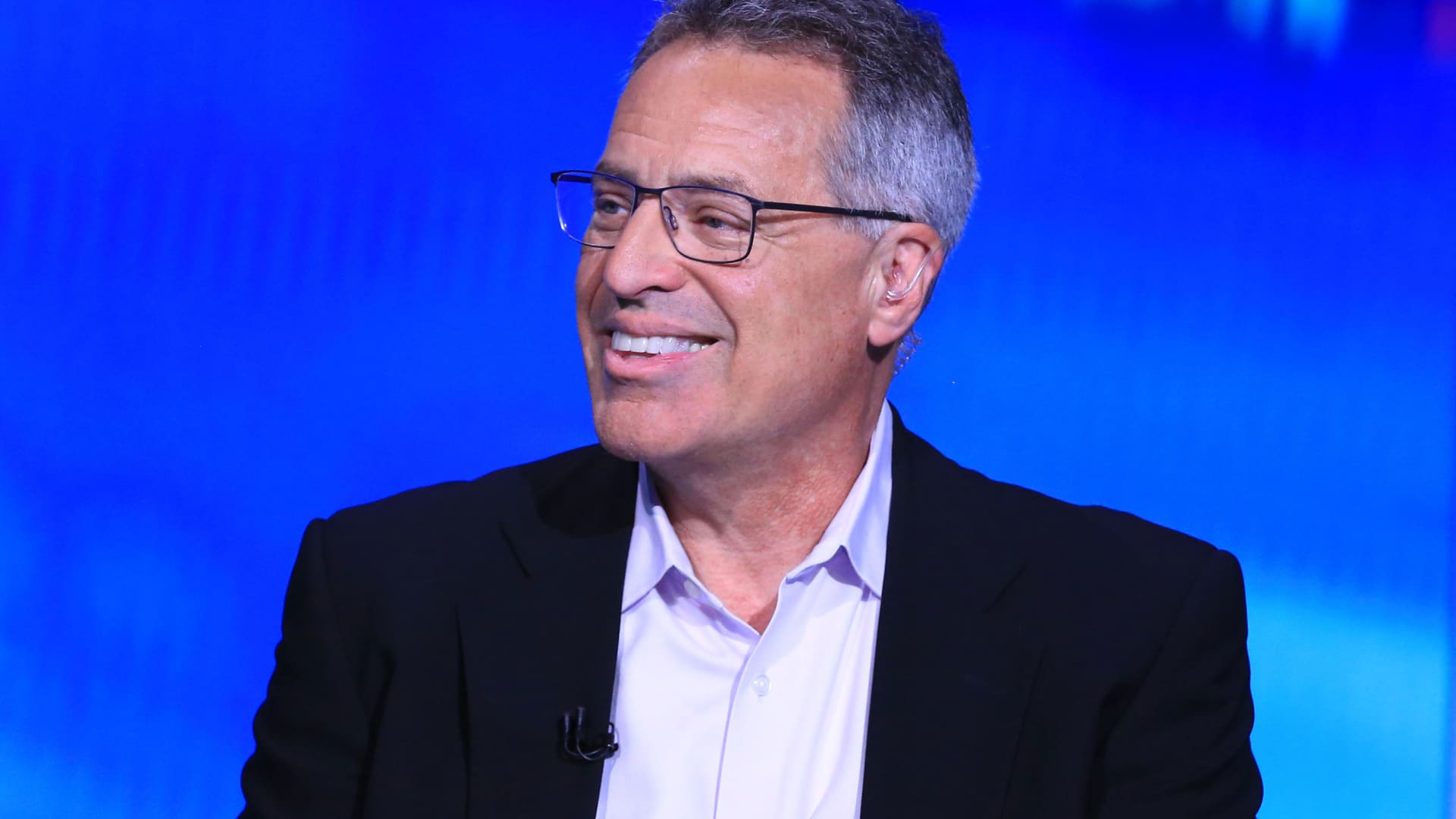IMANI report: From optimism to scrutiny; Public sentiment on the NDC’s first six months in office
By Wilberforce Asare
Copyright asaaseradio

After a short break, the Public Understanding and Literacy for Sentiment and Election Analysis (PULSE) returns with a comprehensive review of political sentiment in Ghana.
Developed by IMANI, PULSE is designed to track social media discourse surrounding the country’s prominent political actors, identify influential narratives, and assess the role of key platforms and influencers in shaping public opinion.
This edition focuses on the first six months of the National Democratic Congress (NDC) administration under President John Dramani Mahama.
Drawing on data from Facebook, X (formerly Twitter), YouTube, TikTok, podcasts, newsfeeds, and the wider web, the analysis highlights how initial optimism at the start of the new administration gave way to rising scepticism as governance controversies, policy contradictions, and partisan tensions reshaped the national conversation.
A. Summary of Sentiment Analysis of January–June 2025
Key Findings:
Initial Optimism: Strong positive sentiment during the inauguration period with #ResettingGhana agenda.
Mixed Reception: Cost-cutting measures and anti-corruption initiatives received cautious approval.
Growing Criticism: “Terminator 1” narrative dominated the March-June period over mass dismissals.
Polarized Discourse: Private jet controversy and selective justice concerns eroded initial goodwill.
Critical Perception Drivers:
Operation Recover All Loot (ORAL): Initially popular but facing credibility challenges.
Fiscal Discipline Measures: Well-received cost-cutting but overshadowed by controversies.
Public Sector Dismissals: Created the strongest negative sentiment wave.
Governance Contradictions: Private jet usage undermined austerity messaging.
The Honeymoon Period (January 2025)
Public sentiment was strongly positive (65–70%) during the inauguration and the launch of the #ResettingGhana agenda. The swearing-in of Ghana’s first female Vice President, Jane Naana Opoku-Agyemang, reinforced hope for progressive governance. Civil society and independents adopted a “watchful optimism,” while the opposition maintained relative quiet.
Key Events:
January 7: John Dramani Mahama sworn in with Jane Naana Opoku-Agyemang as first female Vice President, with 21 heads of state attending.
#ResettingGhana trended across social platforms with widespread optimism.
National Cathedral probe announced, splitting opinion between accountability advocates and political critics.
Cabinet formation and ministerial vetting generated anticipation
Public Perception:
NDC supporters celebrated peaceful transition and historic female VP.
Independents adopted “wait-and-see” attitude.
Opposition remained relatively quiet during transition period.
Fiscal Prudence and Early Approval (February 2025)
A cautiously positive outlook (55–60%) accompanied the President’s first State of the Nation Address, where austerity measures; scaling down Independence Day celebrations and appointing anti-corruption teams, were widely welcomed. Expectations grew for concrete economic relief, but scepticism lingered.
Key Events:
February 27: First State of the Nation Address focusing on economic recovery.
Scaling down Independence Day celebrations seen as positive fiscal discipline gesture.
Anti-corruption team appointments boosted credibility.
Travel restrictions and austerity measures for officials announced.
Growing expectations for concrete economic improvements.
The Turning Point (March 2025)
Sentiment became sharply polarized (45% positive, 45% negative). While the abolition of unpopular taxes (E-levy, betting tax) won public support, the wave of public sector dismissals earned President Mahama the viral nickname “Terminator 1.” Civil servants feared job insecurity, and youth, though pleased by tax relief, grew wary of the government’s employment agenda.
Key Events:
March 3-4: National Economic Dialogue held to find “home-grown” solutions.
“Terminator 1” label emerged as Minority accused Mahama of mass dismissals to create vacancies for NDC loyalists.
Tax abolitions (E-levy, betting tax) implemented, gaining public approval.
Public sector revocations accelerated, fueling opposition narratives.
Sharp lowering of US Dollar vs Cedi exchange rate.
Fuel price reductions.
Public Perception:
Sharp polarization between NDC defenders and critics
Youth appreciated tax abolitions but worried about job security.
Civil servants expressed anxiety over potential dismissals.
Credibility Crisis (April–May 2025)
Negative perceptions rose (45% positive, 50% negative) as the private jet controversy undermined earlier austerity messaging. The government’s flagship Operation Recover All Loot (ORAL), initially hailed, faced doubts over selective justice. Despite international investment forums, opposition narratives of hypocrisy and inconsistency dominated online discourse.
Key Events:
Continued public sector dismissals reinforced “Terminator 1” narrative.
International business forums aimed at attracting investment.
Private jet controversy emerged with Mahama using brother’s aircraft for official trips.
ORAL committee activities generated mixed reactions.
Public Perception:
Opposition successfully amplified hypocrisy narrative.
Business community remained cautiously optimistic.
General public increasingly skeptical of governance promises.
Broader Concerns (June 2025)
Predominantly negative sentiment (50% negative, 45% positive) persisted, fuelled by continued dismissals, private jet debates, and allegations of selective justice. While economic diversification efforts (mining summit, fiscal reforms) gained traction, governance controversies overshadowed them. Even within NDC ranks, disappointment emerged.
Key Events:
Vice President’s private jet usage after medical emergency reignited debate.
Diplomatic protests and diaspora concerns broadened negative coverage.
Issues related to the petition for the dismissal of the Chief Justice.
Mining summit highlighted economic diversification efforts.
Questions about selective justice in anti-corruption efforts.
Questions around the fight against galamsey and its effectiveness.
Public Perception:
Hypocrisy accusations dominated social media discourse.
Economic initiatives overshadowed by governance controversies.
NDC base showing signs of disappointment.
B. Dominant Social Media Narratives
Pro-NDC: Celebrated fiscal discipline, defended dismissals as anti-corruption, and amplified the #ResettingGhana campaign.
Trendy Topics
Emphasized anti-corruption initiatives and fiscal discipline.
Highlighted cabinet size reduction and cost-cutting measures.
Promoted National Cathedral probe as accountability win.
Defended dismissals as necessary cleanup of corruption.
Other scandals emergent – US Embassy scandal, NSS Scandal, other whistleblower revelations (Fourth Estate, etc)
Key Messaging Tactics:
Active reposting of positive policy announcements.
Video clips of ministerial performances.
Comparisons with previous administration’s failures.
Emphasis on long-term vision over short-term pain.
Opposition: Weaponized the “Terminator 1” meme, highlighted hypocrisy in private jet use, and pushed “selective justice” claims.
Trendy Topics
Framed Civil servant dismissals as politically motivated rather than merit based.
Highlighted job losses and economic anxiety.
Amplified private jet “hypocrisy” claims.
Questioned selective prosecution in ORAL initiatives.
The future is pregnant themes.
By-election issues.
Arrest of key opposition party members ie: Wontumi etc.
Adversarial nature of EOCO and OSP.
Viral Content Themes:
Memes depicting Mahama as “The Terminator.”
Before/after comparisons of NDC positions on private jets usage.
Screenshots of dismissed workers’ testimonies.
Clips of opposition MPs’ parliamentary speeches.
Independent/Civil Society: Adopted a “watchful optimism,” raising concerns overdue process, ORAL credibility, and mass revocations.
Trendy Topics
Cautious approval for fiscal discipline measures.
Concerns about rule of law in mass revocations.
Mixed reactions to anti-corruption efforts.
Calls for transparency in ORAL proceedings.
Analysis Focus:
Data-driven assessments of economic policies.
Legal implications of dismissals.
Fact-checking of viral claims.
Long-term governance implications.
C. Comparative Analysis: Promises vs. Perceptions
Campaign Promises vs. Reality
Anti-Corruption (ORAL)
Promise: Swift justice and asset recovery through the Operation Recover All Loot initiative.
Reality: Progress has been slow, with key cases still unresolved and growing doubts about credibility.
Perception: Mixed but trending negative, as selective justice allegations dominate.
Fiscal Discipline
Promise: Lean government and prudent spending.
Reality: Measures like reduced Independence Day celebrations and austerity travel rules were introduced. However, the private jet scandal undermined the narrative.
Perception: Initially positive, but credibility lost due to perceived contradictions.
Job Creation
Promise: Expanded opportunities for the youth.
Reality: Instead of visible new jobs, the story was dominated by public sector dismissals under the “Terminator 1” label.
Perception: Overwhelmingly negative, fuelling anxiety among civil servants and young professionals.
Initial Expectations: Quick economic recovery, aggressive anti-corruption prosecutions, and inclusive governance.
Six-Month Reality: Economic difficulties persist, prosecutions have been limited, and perceptions of partisanship dominate public narratives.
E. Arrests and Prosecutions: Perception and Impact
High-Profile Arrests (Jan–Jun 2025)
Opposition Figures:
Chairman Wontumi (NPP Ashanti Regional Chairman); arrested on charges of financial loss to the state.
Adu-Boahene; implicated in the NSB scandal.
Gifty Oware-Aboagye; arrested over the NSS scandal.
Ken Ofori-Atta; declared a fugitive, placed on Interpol’s Red List.
Social Media Activists: Multiple TikTokers and bloggers arrested for political criticism, sparking debate about freedom of expression.
Pattern Analysis:
Arrests disproportionately targeted outspoken NPP critics and digital influencers.
Charges were often vague (“offensive conduct,” “breach of peace”), with bail frequently denied or set excessively high.
F. ORAL-Related Actions
Prosecutions Initiated:
Few details available on convictions.
Deputy Attorney General admitted delays due to “legal vacation periods.”
Emphasis placed on building “watertight cases” rather than speed.
Discontinued Cases (NDC-affiliated):
Collins Dauda (Saglemi Housing, $200M); case dropped February 7.
Stephen Opuni & Seidu Agongo (COCOBOD, GH₵217M); case dropped January 28.
Cassiel Ato Forson (Ambulance Deal, €2.37M); case withdrawn January 24.
Kwabena Duffuor (UniBank, GH₵663M); case dropped July 2025.
Perception Impact
Selective Justice Narrative:
Opposition framed prosecutions as politically motivated persecution.
The contrast between aggressive NPP arrests and dropped NDC cases fuelled disillusionment.
International concerns surfaced through diplomatic petitions.
Public Reaction:
85% negative sentiment around “Rambo-style arrests.”
Fear of democratic backsliding intensified.
Civil society cautioned against the weaponisation of state institutions.
G. Strategic Insights and Recommendations
Immediate Priorities
Address Selective Justice Perceptions
Publish transparent prosecution criteria.
Guarantee equal treatment regardless of political affiliation.
Provide detailed explanations for discontinued cases.
Restore ORAL’s Credibility
Demonstrate non-partisan approach in corruption cases.
Move from rhetoric to visible prosecutions.
Reform Arrest Methodologies
End militarised “Rambo-style” arrests.
Ensure bail terms are proportionate.
Respect due process and access to legal representation.
H. Medium-Term Strategies
Economic Delivery: Tangible cost-of-living improvements, visible job creation, and investor confidence building.
Governance Consistency: Align policy actions with stated principles, avoid contradictions, and build credibility across political divides.
Youth Engagement: Address job insecurity head-on, create genuine opportunities, and rebuild trust through delivery.
I. Engagement Performance and Media Dynamics
Overall Metrics
Mentions: 22,032
Total Reach: 31 million users
Social Media: 19M (61.3% of total reach)
Non-Social Media: 11M (38.7% of total reach)
Engagement Quality:
Interactions: 1.636K total
Likes/Reactions: 985K (60.2% of interactions)
Comments: 270K (16.7% of interactions)
Shares: 48K (2.9% of interactions)
Average Presence Score: 62/100
J. Platform Breakdown
Key Insight: Traditional media coverage was strong, but much of it was crisis-driven, lacking grassroots enthusiasm.
K. Temporal Engagement Patterns (Weekly)
Weekdays: 200+ mentions daily.
Weekends: 80-100 mentions.
Crisis events: 3-4 times normal traffic.
L. Virality Factors
Negative content: 3.2 times more likely to be shared.
Video content: 2.8 times higher engagement than text.
Memes/hashtags: 4.1 times amplification.
M. Influencer Performance
#npp – 760 mentions (comparative discussions)
#bawumia – 477 mentions (opposition focus)
#ndc – 422 mentions
#ghananews – 259 mentions
#ghanapolitics – 235 mentions
Observation: Opposition hashtags outperformed NDC’s own, reflecting defensive communication.
O. User-Generated Content (Metrics)
Job loss complaints: 34%
Economic hardship stories: 28%
Corruption allegations: 23%
Policy critiques: 15%
P. Engagement Quality
Surface Engagement (likes/reactions): 60.2%
Medium Engagement (comments): 16.7%
Deep Engagement (shares): 2.9%
Interpretation: Citizens are consuming content but not strongly advocating for NDC narratives.
Q. Crisis Amplification
Adu-Boahene Arrest (March 20):
48-hour reach: 3.2M
Amplification rate: 5.6 times baseline
Private Jet Scandal (May):
72-hour reach: 2.8M
Amplification rate: 4.2 times baseline
Pattern: Each crisis went viral within 24–48 hours, sustaining negative sentiment for 5–7 days.
Public sentiment on the NDC administration between January and June 2025 underscores the primacy of credibility in governance. While initial optimism around fiscal discipline and anti-corruption remains a potential foundation, the administration’s ability to deliver tangible improvements and maintain consistent messaging will determine whether early scepticism hardens into lasting disillusionment.
If the administration is to recover, it must match rhetoric with delivery, avoid contradictions, and engage youth and civil society with transparency and tangible results. The lesson is clear; in Ghana’s fast-moving media environment, credibility is the most valuable political currency.



